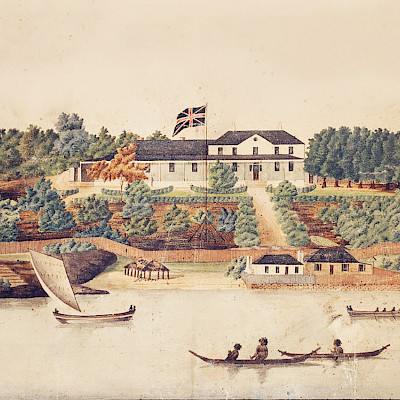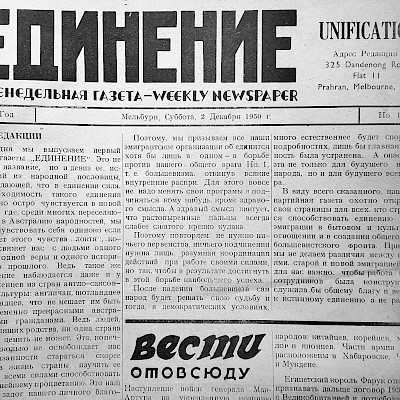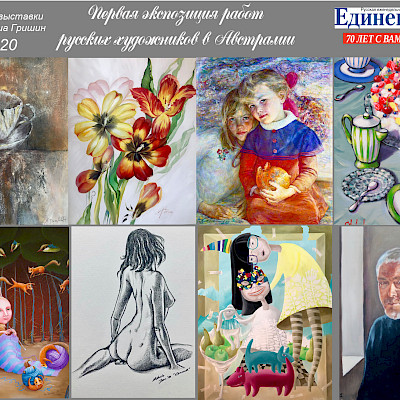From 25 to 28 April this year Sydney Conservatorium of Music will host Musica Viva Festival 2019. The largest musical festival in Australia will gather musicians, singers and performers from all over the world. One of such talents from overseas is Konstantin Shamray, pianist from Russia, PhD student from Elder Conservatorium SA.
I caught up with Konstantin between his rehearsals to talk about music, gardening and passage of time.
— You won the main prize, among many others, at Sydney International Piano Competition in 2008. A lot has happened in both your professional and private life since then. Is there anything that comes to mind first?
— I have no quick answer to such a question. The only thing I can say here is that every year I notice more and more that time passes too quickly. You turn around and here we go, a year has gone by.
— Musica Viva Festival, what attracted you to such an event?
— It is the biggest classical music festival in Australia. I am honoured to be invited to such an event. Musica Viva Festival is excellent organisation, amazing team and fantastic performers. I am happy to be here.
— What program will you be performing? Who made the choice of pieces?
— The pieces were suggested by organisers themselves. I take part in the second and fifth concert together with other musicians. I will be playing Dvorak, Grieg and Rachmaninoff. All in all, these three works are new for me. I will be performing Grieg and Dvorak pieces for the first time and a different part in Rachmaninoff piece. The whole experience is very new and interesting for me.
— You have almost completed your PhD in Performance at Elder Conservatorium. How are you progressing?
— I chose Elder Conservatorium because their PhD program had the best match for me. I always thought that musicians should play and music researchers should write voluminous manuscripts. I chose Adelaide because their program has the best ration of piano performance and research and writing. I try to integrate works that I need to record as part of my coursework into my concert programs and vice versa. The program at Elder Conservatorium gave me amazing opportunity to enrich my repertoire with pieces I have never played before. Sometimes it works out. Sometimes the best option is to postpone coursework and to concentrate on my concert calendar. My PhD is taking its time, but I am hopeful that I will submit it very soon.
— You are concert pianist and PhD student, where do you find the time to do it all?
— On top of it all, I have started teaching recently. As the saying goes, if you want something done, ask a busy person to do it. Once you are busy, really busy, you get more organised and get done more. It is as if some hidden reserves open up inside yourself and you can do it all and more.
— Winning Sydney International Piano Competition 2008 brought a victory and a huge number of prizes. Did it make you conceited?
— By no means, it did not. I am grateful to my teachers back in Russia. They taught me to be very critical of myself. I believe, I developed an immunity to praise.
In music, like in any other vocation, zone of comfort, relaxation and reliance on your own achievement is very dangerous. Once you feel like you have done it, you are at the top, it means you are sliding quickly downhill. Feeling of comfort and self-importance is the enemy of talent and successful career. One has to always work hard to stay afloat if not ahead.
— Are there any particular works of music that you would like to play but have not done so yet?
— There are so many of them. One work in particular, Variations on Diabelli by Beethoven, I get to play later this year. But the list still remains enormous. I will execute this work this year.
— You perform solo and together with symphonic and chamber orchestras. What format do you like the best?
— I think the preferences change throughout my life. When I was fifteen I liked to play with big orchestras. I felt better and more secure being on stage as part of a big collective. Then, I fell in love with playing solo and pouring my soul in music. Later on, I began to enjoy playing with chamber orchestras or even duets. At this stage I love it all. It all depends on the material and on the musicians I get to play with.
Personally, I cannot imagine myself without pen and paper. I write to get the sense of the world around me, to understand it and to function within it. I cannot not to write. And music for you is…
I get what you are saying. I believe music is my life. It is a part of me. I simply do not dwell on reflecting the meaning of it. I live, learn and perform.
— Constant travel, concerts, rehearsals are your life. How do you restore your energy?
— Once a year I go home and do gardening. I restore myself in communication with the nature, with the earth, watching the fruits of my labour come to life. Here in Australia I try gardening too. I do not get such results as I get home, but I keep trying.
— But what about your hands? Pianist has to take good care of his hands.
— This understanding as well as the need comes with age and experience. When you are young guy you think you are invincible and your hands have hidden super powers. With time you begin to notice the strain on your back, playing piano is huge physical exertion. Then, you start thinking on what to do to keep in shape. I try to do all I can. I even started practicing yoga to strengthen my spine.
— This year you are playing as part of Musica Viva Festival in Sydney. Then, you are performing in Melbourne. Where else we will be able to see you play?
— Besides all the engagements you have noted, I will be a judge at Lev Vlasenko Competition in Brisbane later this year. Plus, there will be numerous concerts throughout the year. Also, all music lovers will be able to follow Musica Viva festival on radio ABC.
Konstantin Shamray will be playing RACHMANINOFF Suite no 2 for two pianos, op 17, GRIEG Violin Sonata no 3 in C minor, op 45 and DVOŘÁK Piano Trio no 3 in F minor, op 65 in Concert 2 and Concert 5 of Musica Viva Festival.
Svetlana Tishchenko



















